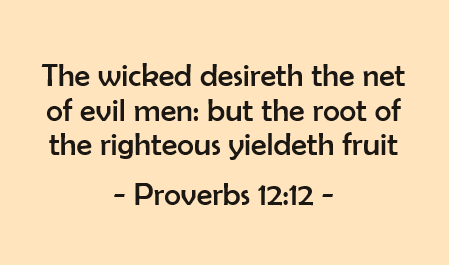Why I Support All Christians
Who is the true church? Is it the Catholics? The Orthodox Christians? Or is true church found among one or some of the many Protestant or Apostolic denominations? Is the true church those who stand outside of all organized forms of Christianity?
Who are the true heretics? Are they the Catholics? The Orthodox Christians? Or are they found among one or some of the many Protestant or Apostolic denominations? Are the true heretics those who stand outside of all organized forms of Christianity?
As Christians, the truth matters to us, and it should. We should all strive to come to a clearer understanding of who Jesus is and how His church should conduct herself. There are many opinions about this matter, but what does the Holy Spirit, the Sprit of Truth, say about this matter?
This is a question that I have wrestled with in some from for nearly 10 years. That’s just a wisp of time compared to the time that others have devoted to the faith, but it is something that I have wanted to get right and have prayed about sincerely many, many times and continue to pray over.
Early in this journey, after committing myself to Jesus outside of any institution of Christianity, I believed that all forms of institutionalized Christianity and those who were among them were not real Christians. I believed that they were all heretics.
Over the years, I have heard the testimony of many believers in Jesus Christ—believers of various Christian denominations and sects—who have experienced the transformative power of the gospel and have been touched by the grace, mercy, and power of God.
Jesus once said that all manner of blasphemy against the Son of Man would be forgiven, but blasphemy against the Holy Ghost is not forgiven. Jesus made this statement after He was accused of casting out devils by the prince of devils. Am I to discount the experience of many Christians, attributing their encounters with Jesus as demonic? If they lived a life that was aimed at knowing, serving, and trusting in Jesus, and were fruitful in that, who am I to judge them?
Over the years, I have also come across many who judge other Christians very harshly. This judgment is vast and varied. Some praise their particular Christian denomination or sect while condemning all others, or certain others. Some stand outside of all institutionalized Christianity and do as I have done and condemn them all as unbelievers.
From my perspective, people can be very good at seeing the fault in others, but they become blind to their own, and some are all too eager to tear people down for disagreements over matters for which I believe we can sincerely disagree for good reason without denying Jesus and His gospel.
The conclusion that I have come to is that the true church comprises all who seek to worship Jesus sincerely and trust in Him for their salvation. Of course, much is included in this. Who is Jesus, and what do we have to believe about Him to be of the Christian faith? What does it mean to worship Him?
Jesus is the fully divine Son of God who became man, died for our sins, rose again, and it is He who has power over life and death. He will judge all things, so if we want a favorable, gracious judgement, then we submit ourselves to His service and trust in His mercy as well as His ability to work in our hearts to make us faithful and profitable servants. We should also show mercy to our fellow servants of Christ, knowing that we all “see in part and know in part.”
I also believe that our institutional devotions can blind us to that truth. However, Jesus is incredibly merciful, and He works with many people despite their misunderstandings, so we should not judge one another too harshly. I believe that Jesus does not honor any of these institutions.
I believe that His true church includes people of various Christian backgrounds who are sincerely devoted to Him, so to Him, the brand of their faith is of little to no importance. It is only of importance when that brand becomes more of a god to them than He, thereby leading to a false sense of superiority and many accusations of the brethren while failing to acknowledge their own shortcomings.
This is the focus of the letter to the Church of Ephesus in Revelation 2. Our first love is Jesus, and in Him we are the true church. If our loyalties are to an institution above Him, then there is a problem. These institutions will be removed because they are not the true church. However, that does not mean that we persecute them or ostracize them. We patiently wait on the Lord to do His work.
I do believe that it is possible to find the truth, and we should seek the truth. I believe that if we strip away our biases that were imposed onto us by the various forms of the Christian faith, then we can come to a clearer understanding. However, what matters most is the way we live our lives out as Christians, which is hinged on “loving the Lord your God with all your heart, all your soul, and all your strength, and loving your neighbor as yourself.” A lot is wrapped up in that, and we can spend a lifetime learning what that means—and our blind loyalties can get in the way.
There are heresies, and they should all be rooted out, but with patience and humility to know that we don’t know anything as well as we should and can—so we keep seeking Jesus in faith to reveal more of Himself by the Spirit given to us.
One heresy that I cannot accept is the one that accuses the brethren falsely, or places an institution (including those outside of any formal institution) above Jesus Christ , our Lord, thereby doing the very thing that Jesus said we should not do—blaspheming the Holy Ghost who works in us all according to the measure of faith and grace afforded us by the Father.
Let’s not grieve the Holy Spirit with our strife, division, and lack of faith in His ability to do all things in His time and to judge all things rightly.
I understand the concern that many might have when I do not shun the group that they feel should be shunned. I also understand the concern that many might have because I do not join a church. I cannot join a church because I would be in hypocrisy, because as far I as I have experienced, they do tend to force their members to conform to all their ways—ways that I disagree with in part among them all.
Jesus is servant of all, and He walks among us all. I would like to do the same, as far as He will graciously allow, and I will encourage others to do the same. I do encourage people to come out of dogma and into a more devoted worship of Jesus Christ in Spirit and in Truth, but I refuse to condemn any of them.
I will not accuse them, and I do not think it wise for any of us to. I also do not think it wise for any to accuse me of my stance. I have worked this out carefully, and unless the Holy Spirit convicts me otherwise, I will not back down. “I am a companion of all them that fear the, and of them that keep thy precepts.”
This matter and more are discussed in the online book, “These Things Saith He,” which takes a Christ-focused look at the letters to the 7 churches in Revelation.











